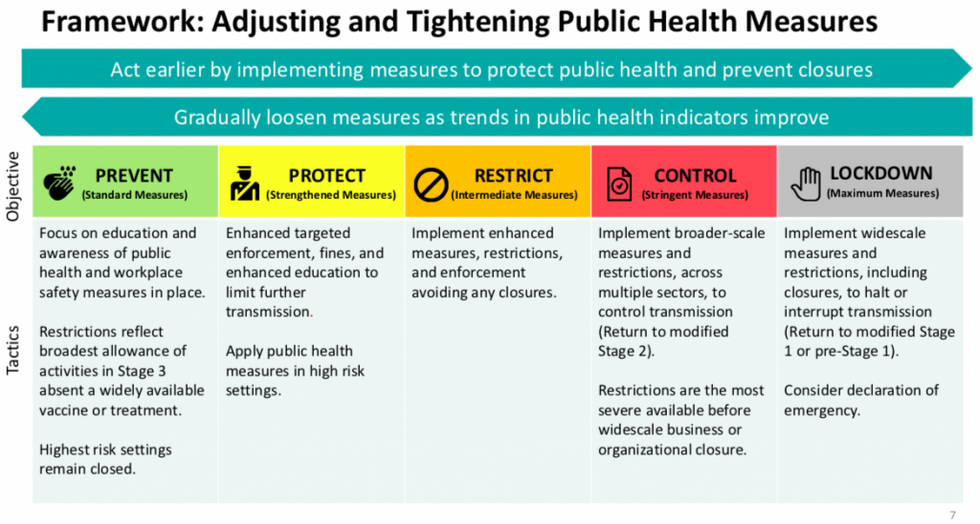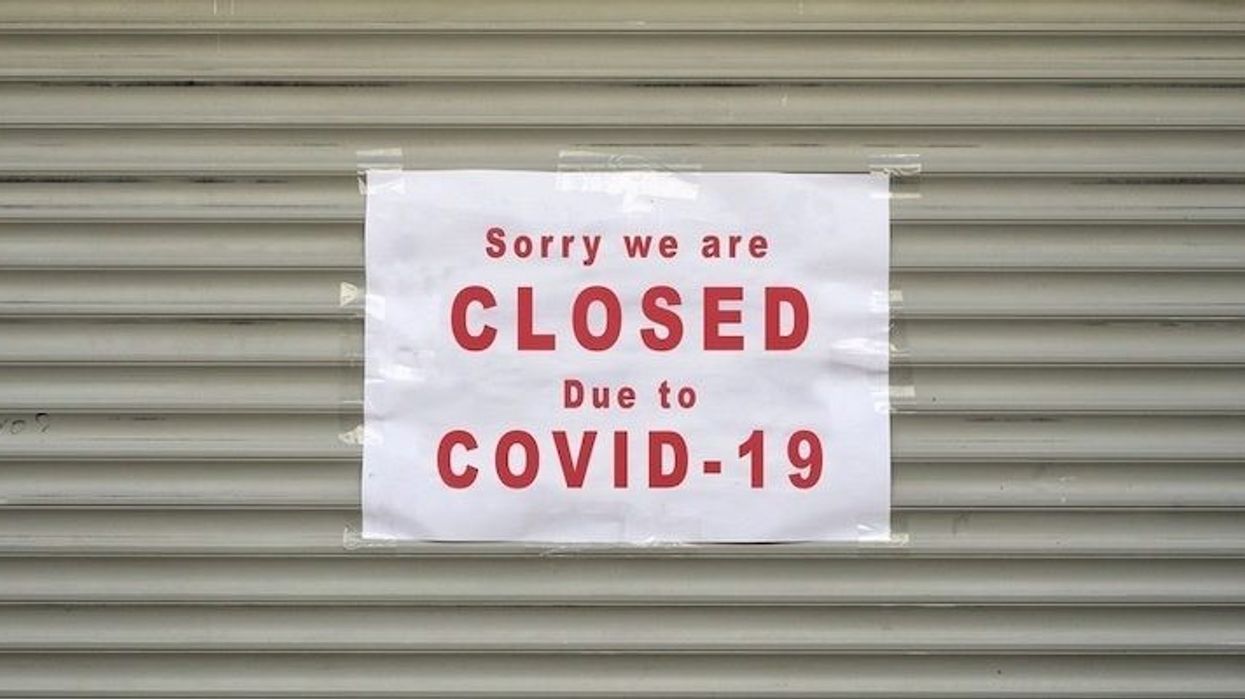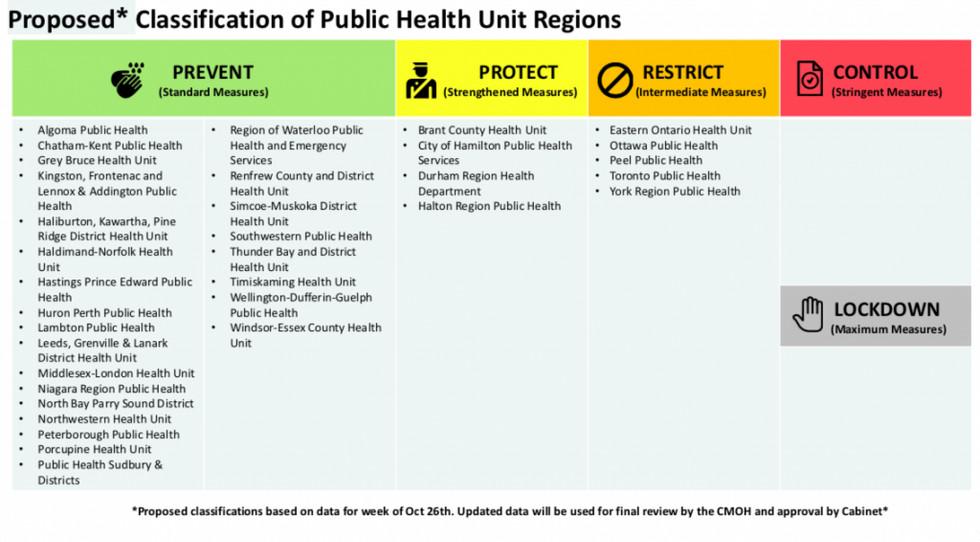Premier Doug Ford unveiled a new colour-coded system that would allow most businesses to reopen in COVID-19 hot spots albeit with stricter restrictions.
On Tuesday, Ford announced the new system, which would place each of Ontario’s public health units into one of five different colour-coded categories based on the level of virus spread within their communities and the capacity of their hospitals.
This announcement comes as Ontario reported a record 1,050 new COVID-19 infections today, marking the highest the province has seen in a single day since the start of the pandemic while breaking the previous record of 1,042 set late last month.
READ: Open Houses in Ontario COVID-19 Hotspots Officially Prohibited
The announcement is part of the province’s release of the Keeping Ontario Safe and Open Framework, which takes a gradual approach that includes introducing preventative measures earlier to help avoid broader closures and allow for additional public health and workplace safety measures to be introduced or removed incrementally.
It categorizes public health unit regions into five levels: Green-Prevent, Yellow-Protect, Orange-Restrict, Red-Control, and Lockdown being a measure of last and urgent resort. Each level outlines the types of public health and workplace safety measures for businesses and organizations. These include targeted measures for specific sectors, institutions, and other settings.
Under the new tiered system, the public health units currently in a modified Stage 2 of Ontario's recovery plan, which include Toronto, Peel Region and Ottawa, were required to implement new restrictions for a period of 28 days on October 11, meaning the additional measures are set to expire this weekend. York Region is also in a modified Stage 2 but is only in its third week of the 28-day period.

At the province's daily news conference, Ford said that as of 12:01 am on November 7, Ottawa, Peel, and York Region will move out of the modified Stage 2, which means gyms, indoor dining, cinemas, and other spaces will be able to reopen but with tighter restrictions, which include earlier closing times, stricter capacity limits, and mandatory symptom screenings.
However, Toronto will not be able to move into the next stage until November 14, as requested by Mayor John Tory.
Under the plan, restaurants and bars will again be allowed to serve customers indoors but they will be expected to stop serving liquor at 9 pm and close their doors at 10 pm. They will also have to seat no more than four people at a table and limit the overall capacity inside to no more than 50 people.
Gyms and sports facilities will also be permitted to reopen but they will have to abide by that same 50-person capacity limit and place limits on the amount of time that clients are allowed to workout. Cinemas will also be able to reopen, but there is an indoor capacity limit of 50 people.
"It's clear COVID-19 will be with us for a while, which is why we are putting in place a framework that will protect the health and safety of individuals and families, while avoiding broader closures across the province," said Premier Ford.
"This framework, developed in consultation with our health experts, will serve as an early warning system allowing us to scale up and scale back public health restrictions on a regional or community basis in response to surges and waves of COVID-19. By introducing public health measures sooner, we can keep this deadly virus at bay, bend the curve and reclaim a little more of our normal lives."
Ford also announced new support measures to help businesses affected by COVID-19. Through the new support program, the Ontario government is making $300 million available to businesses required to close or significantly restrict services in areas subject to modified Stage 2 public health restrictions or, going forward, in areas categorized as Control or Lockdown under Ontario's new tiered system.
The province says, starting on November 16, these businesses can apply for rebates to help with fixed costs, such as property taxes and energy bills.
The following types of businesses in Ottawa will be eligible for assistance:
- Restaurants and bars
- Gyms, facilities for indoor sports and recreational fitness activities
- Performing arts and cinemas
- Bingo halls, gaming establishments, casinos, conference centres and convention centres
- Community centres, multi-purpose facilities, and museums
- Personal care services (with exception of oxygen bars)
- Racing venues
- Meeting or event space
- In-person teaching and instruction
Funding will cover the entire length of time that regionally targeted public health restrictions are in place.






















